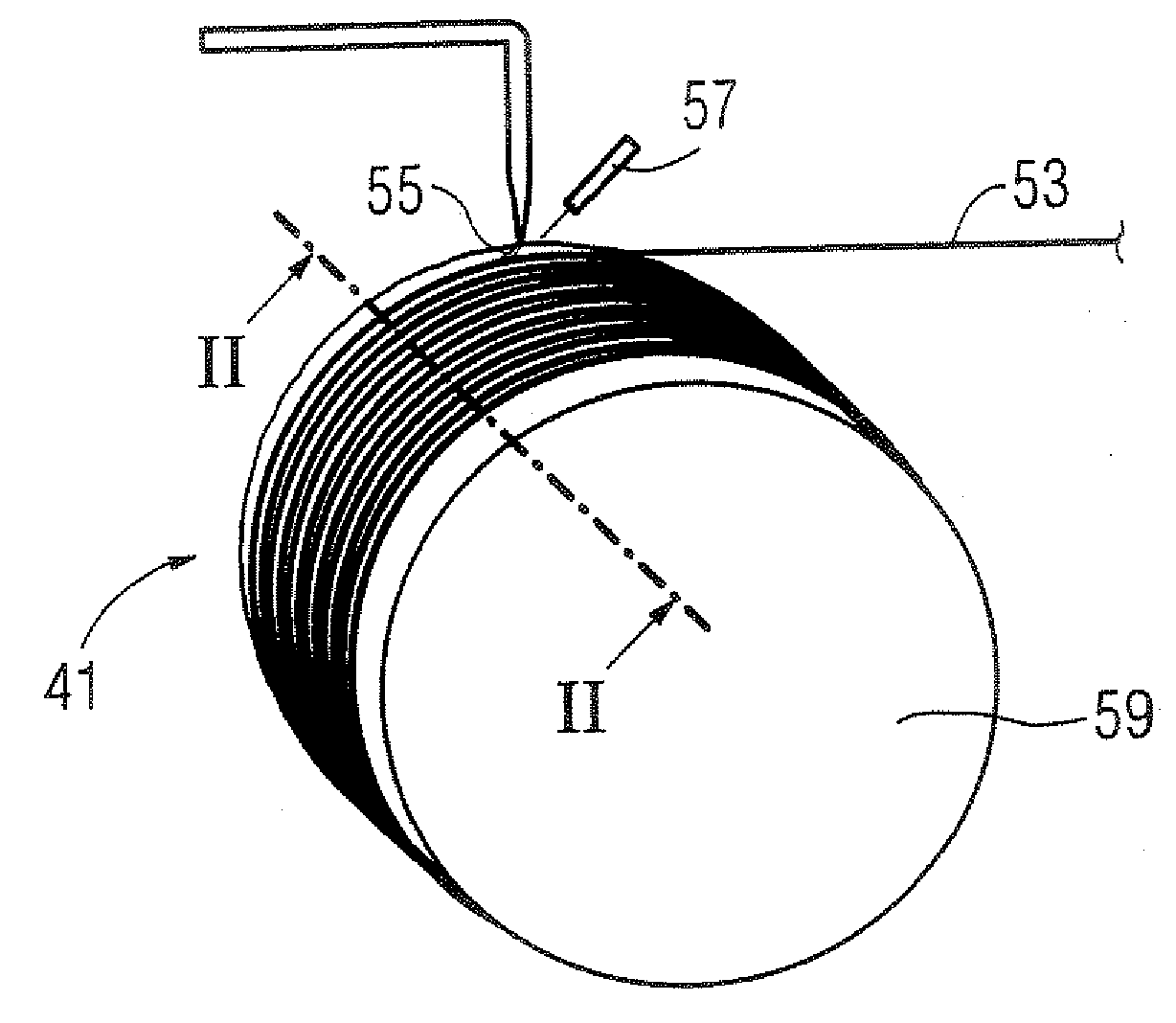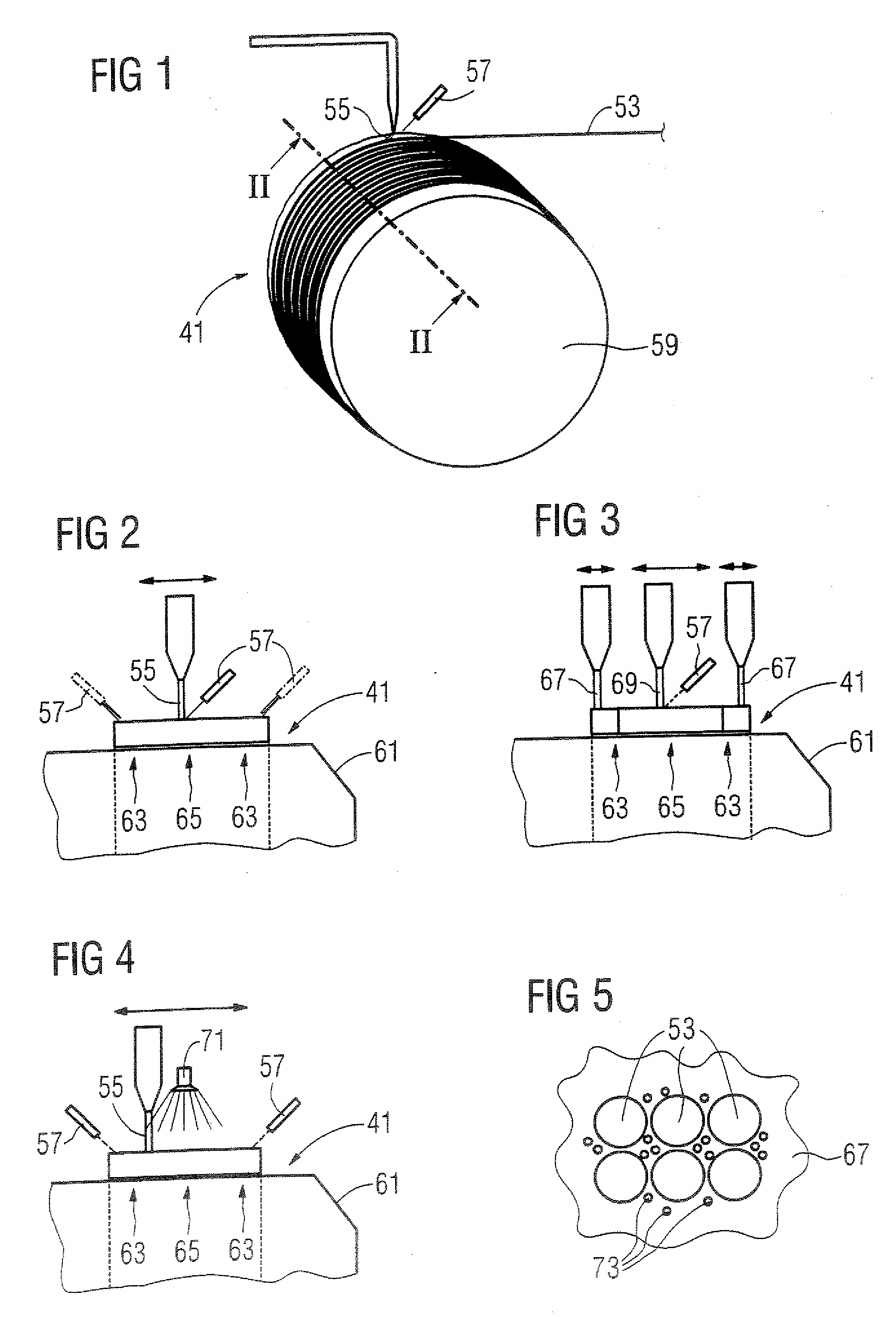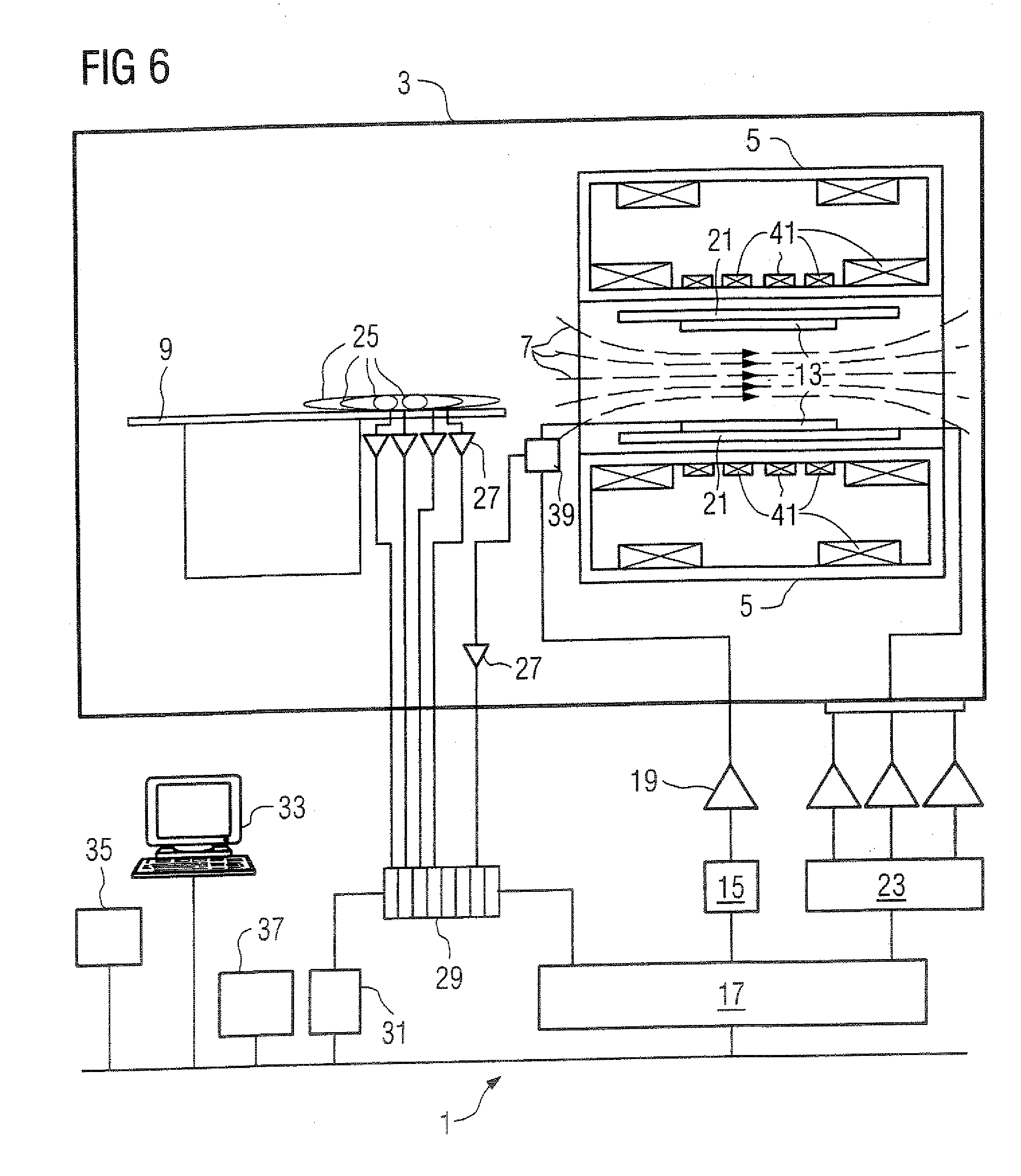Method for production of a superconducting magnetic coil, and mr apparatus having such a coil
- Summary
- Abstract
- Description
- Claims
- Application Information
AI Technical Summary
Benefits of technology
Problems solved by technology
Method used
Image
Examples
Embodiment Construction
[0036]FIG. 1 illustrates the production of a magnetic coil 41 according to the inventive method. The wire 53 from which the magnetic coil 41 is wound is formed of superconducting material, for example a niobium-titanium alloy in a copper cladding or jacket. Up to multiple kilometers of wire 53 are processed in the winding of a magnet 41.
[0037] In the inventive method the superconducting wires 51 are wound together with a UV-curable plastic 55 that is cured during the winding with UV light (which here is generated by a UV laser 57). The UV-curable plastic 55 is preferably a UV-cured epoxy resin.
[0038] Also shown is a coil form 59 on which the wire 53 is wound and that later is a component of the magnetic coil 41. Conventionally the coil form must be executed relatively stably in conventional methods since it must support and stabilize the wire together with a still-wet plastic, and since it must often absorb a majority of the Lorentz forces. In accordance with the invention a light...
PUM
| Property | Measurement | Unit |
|---|---|---|
| Speed | aaaaa | aaaaa |
| Superconductivity | aaaaa | aaaaa |
Abstract
Description
Claims
Application Information
 Login to View More
Login to View More - R&D
- Intellectual Property
- Life Sciences
- Materials
- Tech Scout
- Unparalleled Data Quality
- Higher Quality Content
- 60% Fewer Hallucinations
Browse by: Latest US Patents, China's latest patents, Technical Efficacy Thesaurus, Application Domain, Technology Topic, Popular Technical Reports.
© 2025 PatSnap. All rights reserved.Legal|Privacy policy|Modern Slavery Act Transparency Statement|Sitemap|About US| Contact US: help@patsnap.com



